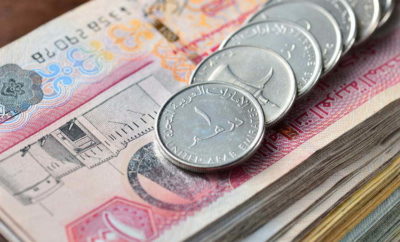Business
UK Foreign Aid Spent on Keeping Indian Homes Cool: Report

Britain's £1.5billion Global Challenges Research Fund gave money to many projects in haste, shows report.
Huge amounts of British taxpayer’s money are being spent on reducing smoking rate among migrant workers in China and to keep Indian homes cool during summer, according to a new report. Big grants are being provided by the Global Challenges Research Fund to the two countries despite protests against the United Kingdom making contributions to resolve their issues.
The £1.5billion fund, managed by the Department of Business, aims to help developing countries by lending research expertise. The report by the Independent Commission for Aid Impact (ICAI) showed that £133,584 UK aid was released to reduce smoking rate among migrant factory workers in the Guangzhou province of China, while another £121,403 was granted to reduce the consumption of sugary drinks in schools in India. A further £537,717 was given for a study to keep Indian homes cool during summer, while the School of Oriental and African Studies received £792,000 to study Tibetan verb.
The report said: “The early rounds of GCRF funding were done in haste, encouraging UK research institutions to rely on existing research partnerships, which were mainly in middle-income countries.
“The GCRF’s focus on research excellence may continue to advantage developing countries that already have credible research institutions, rather than directing investment towards poorer countries where capacity building may be most needed.”
ICAI found 38 projects meant for India that will grant £1.5 billion between 2016 and 2021. China was granted 22 such projects.
“The Global Challenges Research Fund has the potential to address important global development challenges…However currently there is a real risk that the fund’s resources will be spread too thinly to achieve truly transformative results,” ICAI commissioner Tina Fahm said.
The Department for International Development (DFID) closed all funding programs for China in 2011, but the country continues to received monetary aid from other departments.
The spending, was however, defended by the Department for Business, Energy and Industrial Strategy (BEIS), with its spokesperson saying, “The Global Challenges Research Fund (GCRF) has shown how the UK’s expertise in research and innovation can lead the charge in solving some of the greatest global development challenges of our time, while also contributing to the stability, security and prosperity of the UK.
“As with all Overseas Development Assistance investments, there are robust assessment processes in place for the GCRF which ensures the program benefits the world’s poorest people and provides value for money for UK taxpayers. BEIS will review the report’s recommendations and respond in due course.
The UK ended financial aid to China in 2011 and India in 2015. Our support has moved to sharing skills, advice and expertise.”
He added: “China and India remain home to more than half of the world’s poorest people, and continuing progress in middle-income countries is regarded as essential to achieving the UN’s Sustainable Development Goals.”
British ministers are under pressure on improving ways to spend the taxpayer’s money after Prime Minister Theresa May promised to follow former PM David Cameron’s commitment to spend 0.7 per cent of Britain’s income on international development.



